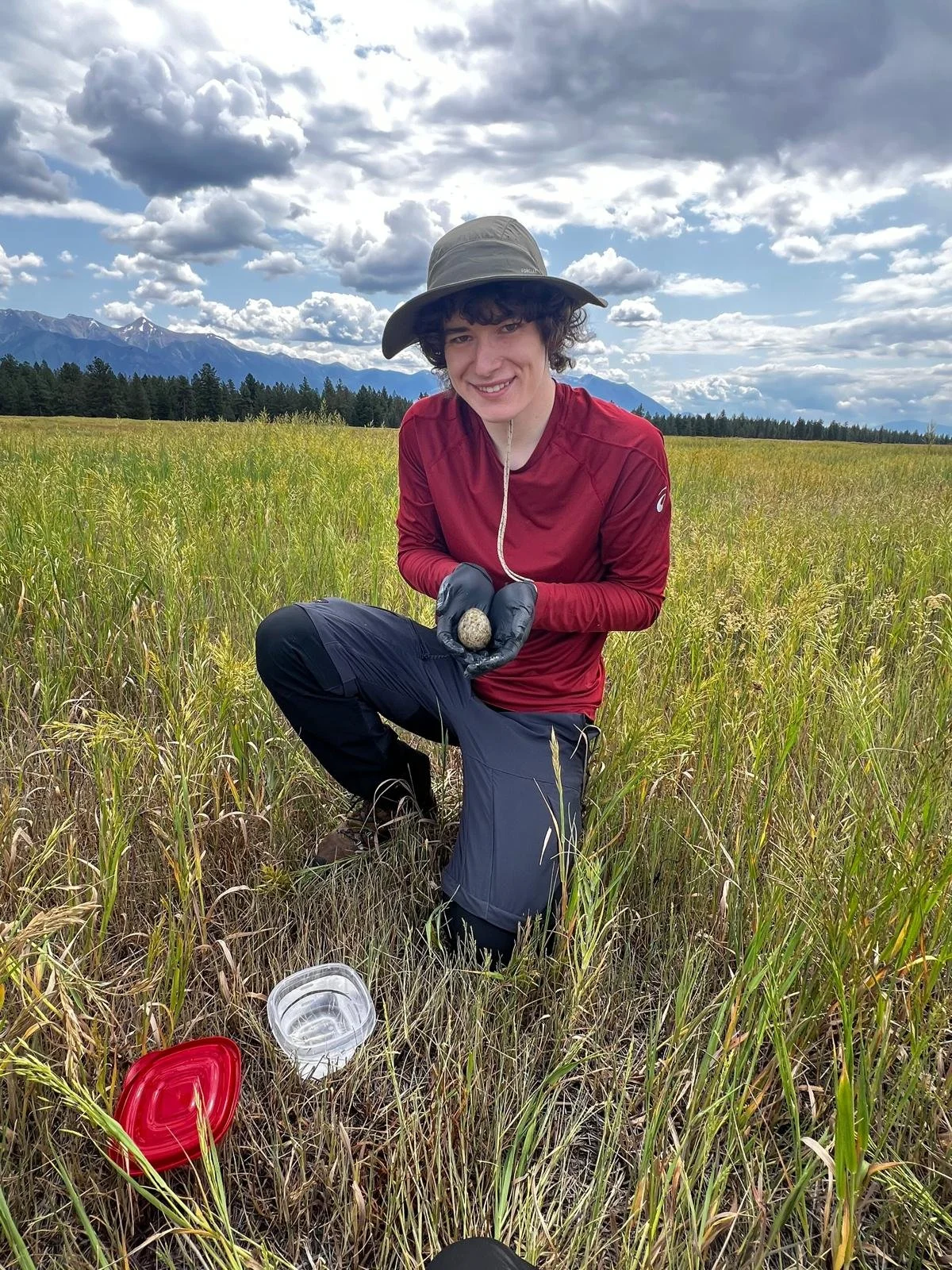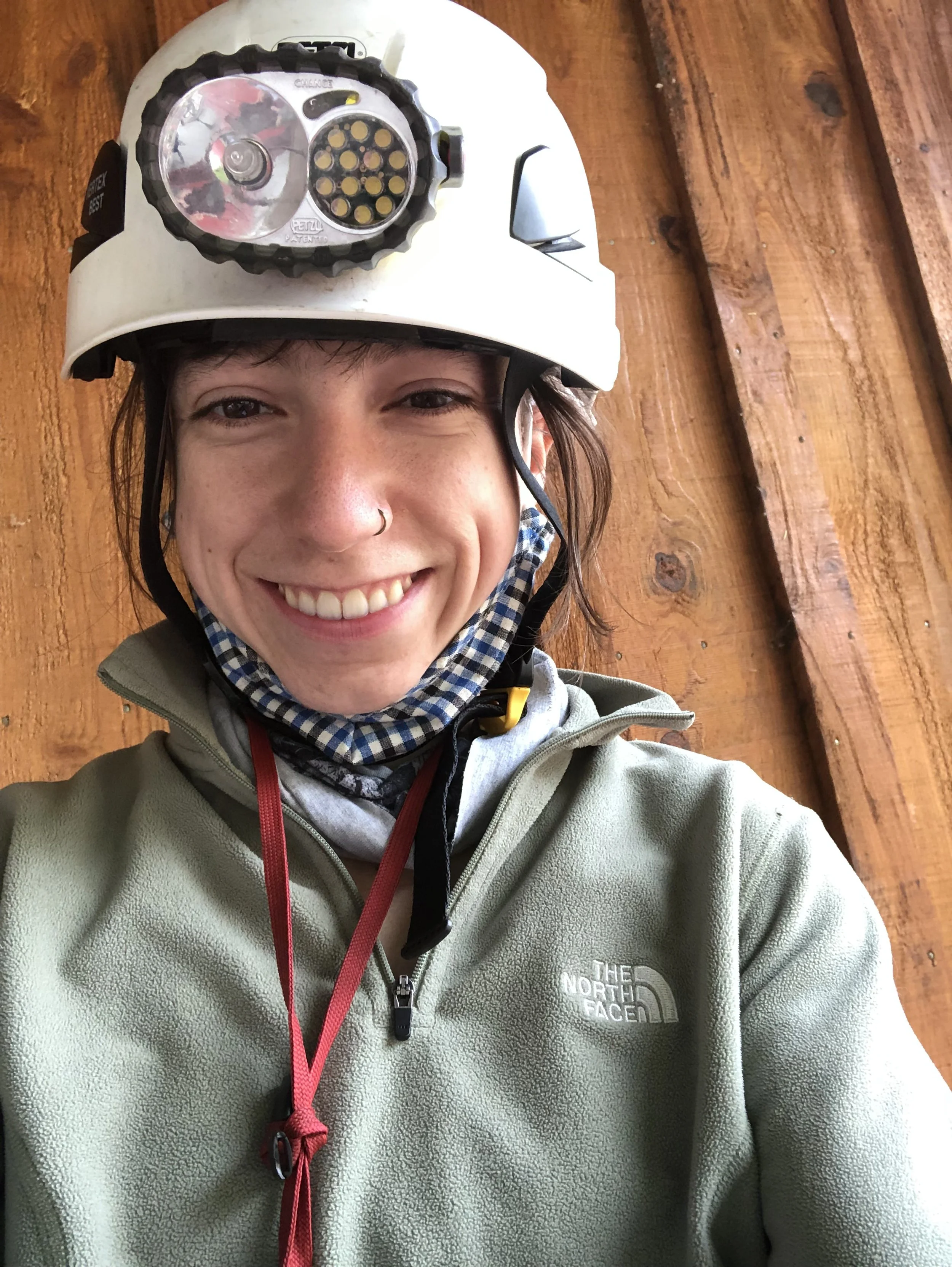
Current Lab Members
PhD Students
Tabatha Cormier
Alyssa obtained a BSc from the University of Manitoba and an MSc from the University of Windsor. Currently, she is pursuing her PhD, focusing on thick-billed murres. Her research involves studying the impact of shipping related to Baffinlands iron ore mine on the breeding population of murres at Cape Graham Moore, Nunavut. Dr. Grant Gilchrist from ECCC is co-supervising her studies. Check out her most recent research here.
Christina graduated as a Biology Honours student at McGill University. Her MSc thesis was also completed at McGill University. Her PhD now focuses on plastic-related contaminants in seabirds breeding in the Gulf of St. Lawrence using biologging devices and historical data. Co-supervised by Dr. Raphaël Lavoie (ECCC). Check out her most recent research here.
Carter did his B.Sc. at the University of Toronto and his M.Sc. at Laurentian University. His doctoral research focuses on investigating sources of decline in Black-Legged Kittiwakes in the Gulf of St. Lawrence using historical monitoring data, biologging, and predictive modelling approaches. Co-supervised by Dr. Raphaël Lavoie (ECCC).
Marianne completed her B.Sc. in ecology at the Université de Sherbrooke and a M.Sc. degree in biology at the Université de Moncton. Her Ph.D. project focuses on Thick-billed murres genetics and mate selection. She will be seen working at Coats Island, Nunavut, for the summers to come. co-supervised by Vicki Friesen (Queen’s University). Check out her most recent research here.
Tabatha completed her B.Sc.H and M.Sc. in biology at the University of New Brunswick, where she studied the breeding ornamentation of Atlantic Puffins. Her Ph.D. research focuses on the impacts of climate change on cryopelagic ecosystems, by investigating longitudinal trends in the breeding biology of Mandt’s Black Guillemot on Cooper Island, Alaska. Co-supervised by George Divoky (Cooper Island Arctic Research).
Postdoc
Anaïs completed her PhD at UBO exploring mercury accumulation processes in tunas in the global ocean. She continued as a postdoctoral fellow at La Rochelle Université and IRD using mercury stable isotopes to examine the trophic ecology of micronekton. Anaïs is now exploring the bioaccumulation and movement of plastic-related contaminants into thick-billed murres and glaucous gulls breeding at Coats Island, co-supervised by Kim Fernie (ECCC).
Alana completed an interdisciplinary BSc Hons. in environmental biology at the University of Saskatchewan, and an MSc in biological sciences at the University of Alberta. Her PhD project at McGill combines her interests in environmental interactions with fish and birds and a love for the Arctic. Co-supervised by Jonas Hentati-Sundberg (Swedish University of Agricultural Sciences), she will be examining the foraging relationships between thick-billed murres and forage fish at Coats Island and Digges Island in Nunavut.
Alana Krug-MacLeod
M.Sc. Students
-

Katelyn Depot
Katelyn completed a B.Sc. in Environmental Biology at McGill University and spent several years doing fieldwork with aquatic birds and fish. Her M.Sc. research focuses on the diet and foraging behavior of black-legged kittiwakes in the Gulf of Alaska. She aims to study the distribution of prey by coupling prey samples to the foraging locations of GPS-tracked individuals.
-

Nathanya Goudreau
Nathanya completed her BSc Hon. at McGill University and is now working on her MSc. Her research focuses on mapping the migration and wintering areas of Chestnut-sided warblers and Yellow warblers. She will estimate how urbanized their potential stopover sites and migratory paths are with the help of some of the smallest tags available.
Honours & Research Project Students
-

Caitlyn Goodwin
Caitlyn is using herring gull pellets collected over the 2024 summer field season to observe the relationship between location, and plastic prevalence within the St. Lawrence. Through examining the presence of anthropogenic debris items in herring gull pellets, she aims to gain an understanding of how plastic pollution differs within the St. Lawrence Estuary based on proximity to urban centers. She is co-supervised by Christina Petalas, PhD Student, and Dr. Raphael Lavoie (ECCC).
-
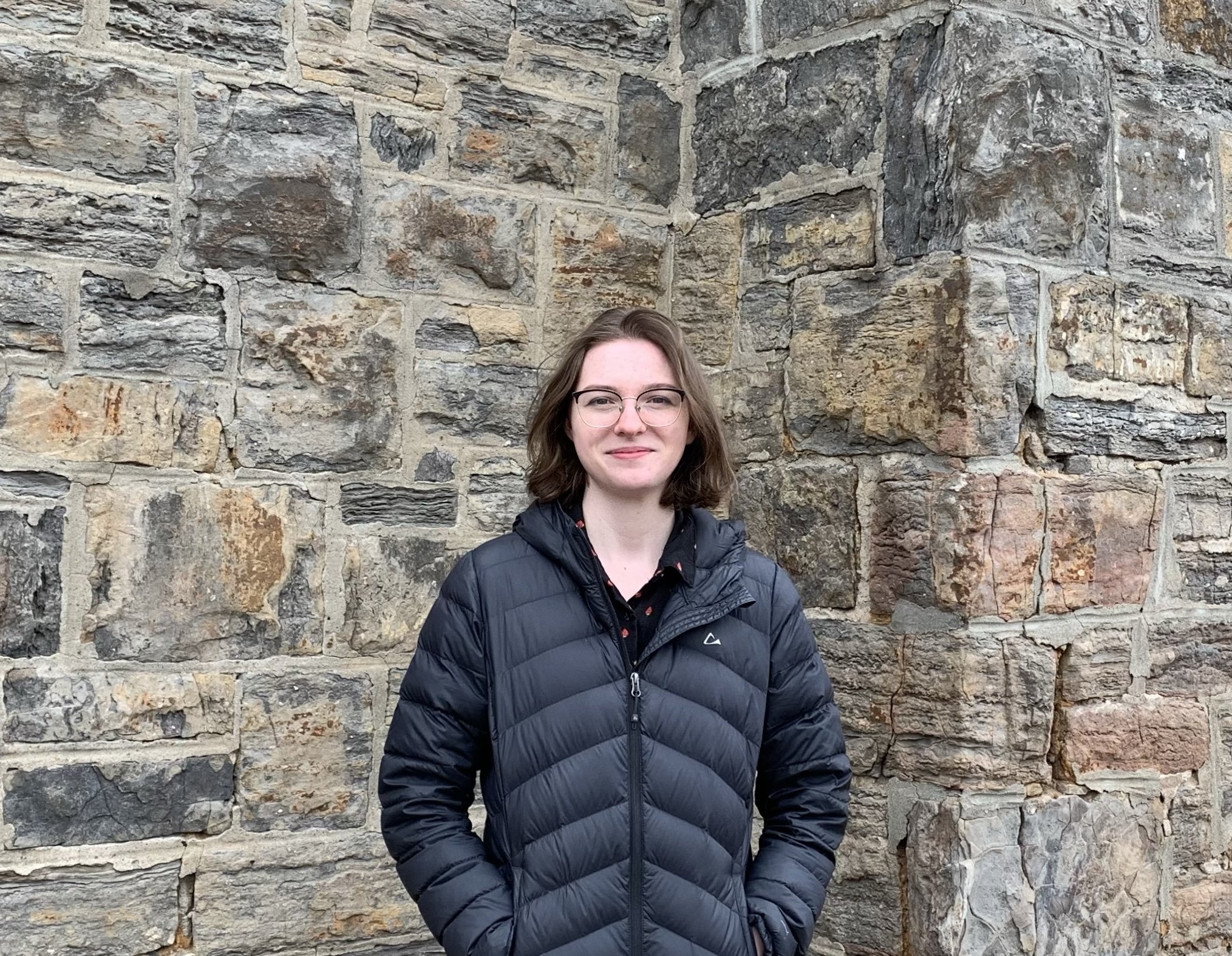
Aimee Fraser
Undergraduate student majoring in Wildlife Biology at McGill. She is undertaking an Honours project using trail cameras to investigate the prey Atlantic puffins offer their chicks over the breeding season. By analyzing foraging strategy, she aims to see if prey decreases in abundance around the colony during this period. Co-supervised by Christina Petalas, and Raphael Lavoie (ECCC).
-

Gabrielle Girard
Gabrielle completed a technical degree in Environmental and Wildlife Management at Vanier College and is currently an undergraduate at McGill University in Environmental Biology. Her honours project looks at the breeding success of American Kestrels in relation to adjacent anthropogenic structures. By understanding the elements contributing to their breeding success, she aims to improve the placement of nest boxes in the greater Montreal area to contribute to their conservation. Supervised by Dr. Barbara Frei (ECCC).
-
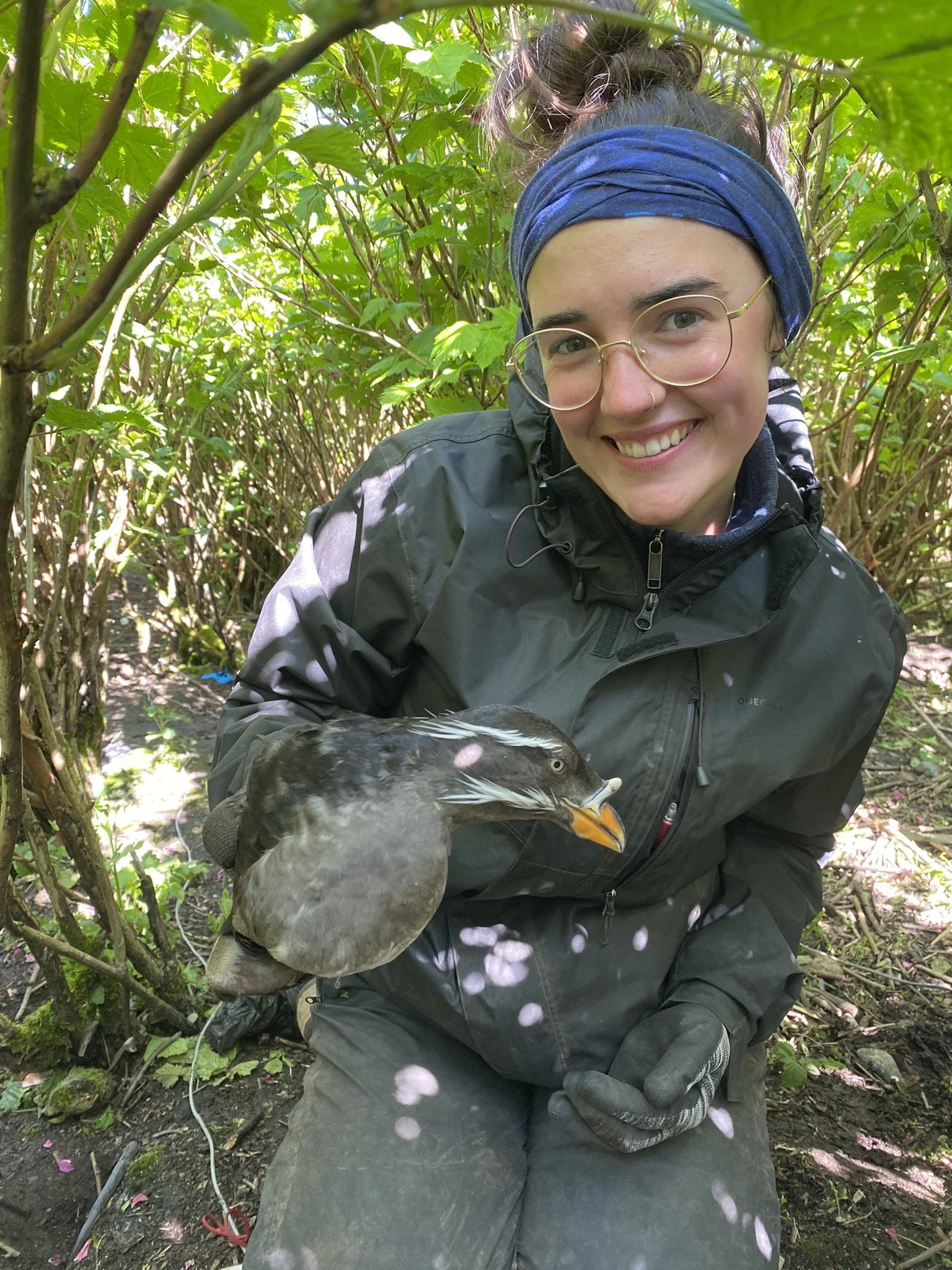
Katelynn Normand
Katelynn is a Biology undergraduate student at McGill University. Her honours project is studying the link between personality and survival in rhinoceros auklets. She spent this past field season on Middleton Island, where she performed personality tests and recorded nest box presence using RFID. With this data, she aims to estimate survival and study its link between different personality types, exploring how RFID and PIT tagging technologies can be used to do so. Co-supervised by Eliane Miranda.
-
Émile Chamberland
Émile is an undergraduate student in Wildlife Biology at McGill University. His honours project focuses on the foraging behaviour of the thick-billed murre using GPS tracks from the Arctic. He aims to locate foraging hotspots of the thick-billed murre and investigate how foraging behaviour and hotspot locations vary across time and space. He is supervised by Kyle Elliott and co-supervised by Alana Krug-MacLeod. -
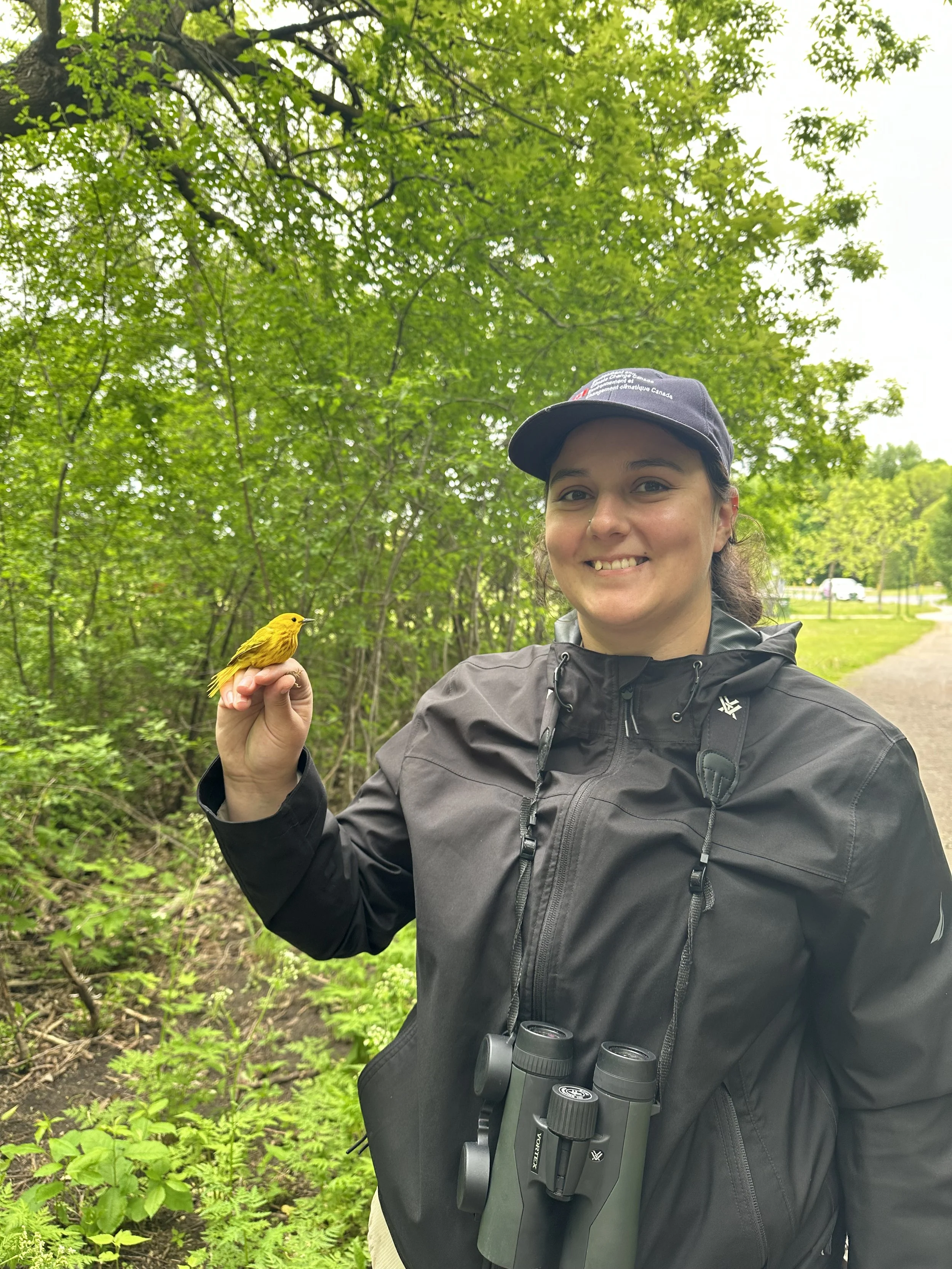
Danaé Niflis
Danae is investigating how geolocators affect the survival and behavior of Chestnut-sided Warblers and Yellow Warblers. By attempting to resight and recapture individuals tagged in the previous year, she aims to understand how these birds respond to the tracking devices and their deployment. Her research seeks to improve the use of geolocators to minimize their potential impact on these migratory songbirds. She is co-supervised by Dr. Barbara Frei (ECCC) and Nathanya Goudreau.
Past Students
-

Anne-Marie Cousineau
Anne-Marie completed her BSc in Biology with a concentration in Biodiversity, Ecology, and Evolution at Université de Montréal. Currently, she is pursuing her MSc project under the guidance of Dr. Kyle Elliott and Dr. Barbara Frei.. For her MSc project, Anne-Marie has chosen to focus on the Northern Cardinal, a bird species, within the urban environment of Montreal. Her research aims to investigate the movement patterns of Northern Cardinals across urban green spaces during the non-breeding season and establish connections to urban nature management practices.
-

Nayla Beaumont, Honours
Nayla is mapping out the migratory movements of Atlantic puffins outside of the breeding season and investigating energy expenditure for this species across its wintering range. She seeks to identify the mechanism behind the spatial distribution of this red-listed seabird and test the Abundant-Centre Hypothesis, which states that resources tend to be more abundant at the centre of a species’ range. Co-supervised by Christina Petalas, and Raphael Lavoie (ECCC).
-

Brian Audla
Brian is using field photos of herring gull nest collected over the 2024 field season to observe the presence of plastic in nest composition and examine the influence on the hatching success rate within the St. Lawrence. By examining the photos with the Coral Point Count with Excel (CPCe) program, and along with herring gull pellet data, he aims to find if individuals with more plastic will have a higher or lower hatching success rate. He is co-supervised by Christina Petalas, PhD candidate, and Dr. Raphael Lavoie (ECCC).
-
Cassandra Ciafro, Honours
Cassandra will be working on an honours project looking into the diet and foraging ecology of tufted puffins in the Gulf of Alaska. She spent this past field season on Middleton Island, where she deployed remote download GPS devices on chick-rearing adults and monitored diet with camera traps placed outside of burrows. She aims to study the distribution of prey by combining prey samples with foraging data from tracked individuals. Co-supervised by Katelyn Depot.
-

Guzal Riskulova
Guzal is studying the similarities and differences in the diets given by thick-billed murre breeding partners to their chick at Coats Island during the span of three summers. By performing statistical analysis on the feeding watch data, she is aiming to understand the pattern involved in the coordination effort that female and male parent accomplish in rearing their chick. She is being co-supervised under Dr. Kyle Elliott and Marianne Gousy-Leblanc.
-

Eliane Miranda, MSc
Eliane completed her undergraduate degree at McGill in Environmental Biology. Her M.Sc. thesis focuses on exploring the potentials of PIT tagging as a technology which allows for the collection of large amounts of data with limited disturbance, specifically in two auk species: the ground-nesting rhinoceros auklet and the cliff-nesting thick-billed murre.
-

Julia Baak, PhD
Julia completed her M.Sc. at Acadia University and a B.Sc.H. at Dalhousie University. Her PhD research focused on seabirds as ecological indicators of contaminants in Arctic ecosystems. Julia examines the presence and impact of plastic and plastic-related contaminants in black-legged kittiwakes. Co-supervised by Mark Mallory (Acadia University). Check out her most recent research here.
-

Émile Brisson-Curadeau, PhD
Émile completed his B.Sc. in biology at UDEM and his M.Sc. at McGill University. He was the recipient of the third BOU Pat & John Warham studentship, and studies the effect of marine heat waves on king penguins in the French sub-Antarctic islands (Kerguelen, specifically). He was co-supervised with Charly Bost at CNRS (Chize). Check out his most recent research here.
-

Francis Van Oordt, PhD
Francis has a B.Sc. in biology from Universidad Nacional Agraria and a M.Sc. from California State University. Francis's PhD focused on resident seabirds in Peru (Guanay cormorants and Peruvian boobies) trying to understand their foraging patterns, physiology and diet composition changes associated to environmental disturbances along the Upwelling Humboldt Current System. He was co-supervised by Jorge Tam (Peru). He is now embarking on a PostDoc in the biology department at McGill University.
-

Don-Jean Leandri-Breton, PhD
Don-Jean did his B.Sc. here at Laval University and a M.Sc. degree at UQAR. His PhD research brought him to Svalbard (Norway) to study seasonal interactions between non-breeding behaviours and breeding success mediated by stress-induced carry-over effects in a long-term monitored kittiwake colony. Co-supervisod by Olivier Chastel (CNRS-France). Check out his most recent research here.
-

Sofia Higgs, Honours
Sofia looked at plastic pollution in the St. Lawrence System using herring gull pellets that were collected in summer 2023. She identified the presence of plastics and anthropogenic debris within this species, gaining insight into the impact of pollution within the St. Lawrence. She was co-supervised by Christina Petalas, PhD student, and Dr. Raphael Lavoie (ECCC), and will be starting a MSc on cetaceans in the St. Lawrence.
-

Lauren Dobie, Honours
Lauren compared two different methods of conducting acoustic surveys on bats: a traditional method using a handheld device, and a new method using a recording device suspended from a drone. The goal of the project is to optimize the drone method of sampling and to determine which method is more efficient in different habitat types. She will be starting her MSc at Univesity of Carelton in September 2024.
-

Nathanya Goudreau, Honours
Nathanya completed her honour’s project using historical banding data from the McGill Bird Observatory and the Tadoussac Bird Observatory, investigating wing length and body mass trends of migratory and non-migratory passerines. She was supervised by Dr. Barbara Frei and Émile Brisson-Curadeau, and will be starting a MSc with Drs. Kyle Elliott and Barbara Frei in January 2025.
-
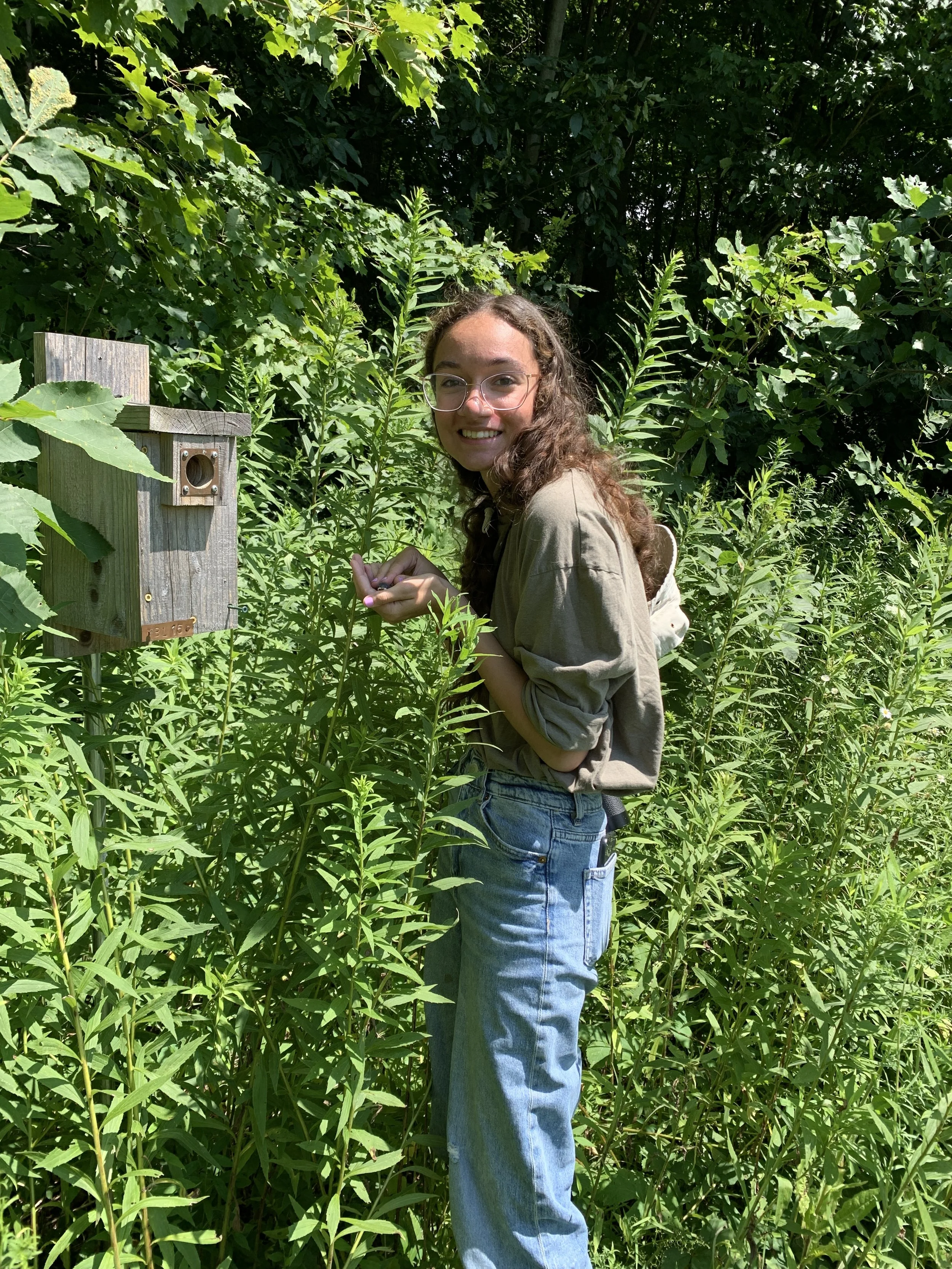
Maya Roopnarine, Research Project
Maya completed her independent research project on the timing of spring migration and breeding success of Eastern Bluebirds and Tree Swallows using data from long-term nest box monitoring efforts.
-
Rebecka Lahaise, Honours
Rebecka completed her Honour’s project where she compared the effects on capsaicin treated seeds on black-capped chickees.
-

Jamie Depolla, Honours
Jamie completed his Honours thesis where he used spatial analysis tools to determine the factors shaping the biodiversity of birds breeding in urban forests of the island of Montreal. He was co-supervised by Dr. Barbara Frei (ECCC).
-
Jade Legros, MSc
Jade completed her B.Sc. in ecology at the University of Sherbrooke. Her master's thesis focused on bat habitats selection over their annual cycle in Quebec. Co-supervised by Dr. Anouk Simard (MFFP) and Dr. Liam McGuire (University of Waterloo).
-

Rose Lacombe, MSc
Rose graduated from McGill as an Honours student in Environmental Biology. Her Master’s thesis investigated the trophic movement of mercury in the Northern gannet food web and spatial distribution in the Gulf of St. Lawrence. Co-supervised by Dr. Raphaël Lavoie (ECCC).
-

Vanessa Poirier, MSc
Vanessa completed her Bsc in Honours Environmental Biology at McGill. Her M.Sc. focused on the habitat use of molt migrating Swainson’s thrushes and Tennessee warblers during their stopover in Montreal. Co-supervised by Dr. Barbara Frei (ECCC) at the McGill Bird Observatory.
-

Dr. Emily Choy, PostDoc
Emily completed her PhD at the University of Manitoba (supervised by Lisa Loseto (DFO) and Jim Roth) and MSc (supervised by Jules Blais) at the University of Ottawa. Emily was a Weston Scientist on the 2014 Victoria Strait Expedition. She was supported via W. Garfield Weston and FRQNT postdoctoral fellowships and her research (co-supervised by Dr. Grant Gilchrist) examined relationships between physiological strategies and foraging movements in thick-billed murres to provide an energetics framework for understanding the movement patterns of marine predators in relation to shipping routes in Hudson Bay.
-

Fred Tremblay, MSc
Fred completed her undergrad in Wildlife Biology at McGill University through which she did an Honours thesis, from 2019-2020. Fred M.Sc. research focused on the field of energetics. More specifically, studied the effects of thermal stress on arctic seabirds, such as in murres and kittiwakes. Read the paper here.
-

Shannon Whelan, PhD
Shannon completed her MSc at uOttawa. Her PhD work examined individual variation in foraging behaviour in two Arctic seabirds: black-legged kittiwakes and thick-billed murres. She used GPS-accelerometers to “spy” on the daily activities of these birds in order to see how they respond to environmental change. Check out the papers here,here, here and here.
-

Thomas Lazarus
Thomas joined us from Alsace, France. He was funded via MITACS and CREATE scholarships and his dissertation (co-supervisor: Grant Gilchrist) involved deciphering why and how breeding murres move in the Canadian Arctic, and how that might intersect with shipping of iron ore from the Baffinlands mine.
-

Christina Petalas, MSc
Christina graduated as a Biology Honours student at McGill. Specifically, her interest is in how sympatric species sufficiently differentiate their ecological niches in order to co-exist. Her MSc thesis tried to understand whether foraging partitioning occurs in these seabird species that breed sympatrically in the Mingan Archipelago within the Gulf of St-Lawrence. She is now doing a PhD in the lab. Read her work here.
-

Jenna Schlener, MSc
Jenna completed her Bachelor’s degree at College of the Atlantic where she majored in Human Ecology. Her MSc thesis (co-supervised by Dr. Mélanie Guigueno) explored the connections between foraging repeatability and reproductive success. She now works as science coordinator at the Sea Life Centre in Seward, Alaska.
-

Ilse Esparza, MSc
Ilse joined us from México, where she completed her undergrad at Universidad Nacional Autónoma de México. Next, for two years, she worked on restoration and conservation of islands in the Mexican Pacific. Her MSc thesis was co-supervised by Héctor Guzmán from the Smithsonian Tropical Research Institute. Her project examined examine aspects of demography, reproductive success, and ecotoxicology on seabird species in the Panama Canal and the Arctic. Read her Masters work here.
-

Kristen Lalla, MSc
Kristen completed her undergrad at McGill in the School of Environment. For her MSc (co-supervised by Kevin Fraser), Kristen studied purple martin populations around Montreal. 90% of martins have disappeared with Quebec, with the final remnants left near Montreal, and Kristen will help find out why. Previously, Kristen was an Environment (Biodiversity and Conservation) Honours student with a lifelong passion for birds. Kristen now works as a biologist at Environment Canada. Read her Masters work here.
-

Ana Morales, MSc
Ana completed her undergrad at McGill with a Major in Environmental Biology. Her MSc thesis was co-supervised by Barbara Frei from the McGill Bird Observatory and she studied the migration and stopover ecology of moult migrant Swainson’s thrushes in Montreal using the Motus Wildlife Tracking System. Ana worked as lab research coordinator for two years (2020-22) before migrating to Environment Canada (S&T) where she is now a technician. Read her Masters work here and here.
-

Émile Brisson-Curadeau, MSc
Emile completed a MSc on coloniality in murres. Coats Island was his study area for two years, where he used cutting-edge technologies to record all the facets of those fascinating diving birds. Emile is now doing his PhD on king penguins having received a Vanier scholarship and a BOU John & Pat Warham Studentship on Penguins and Procellariformes. Read his Masters work here, here, and here.
-

Esteban Góngora, MSc
Esteban joined us from Bogotá, Colombia after completing his undergrad at Universidad de los Andes with a double major in biology and microbiology. Co-supervised by Lyle Whyte (McGill), he worked on various aspects of the relationships occurring between birds and their microbiome with a special focus to bird’s diet preferences and differential levels of mercury present on bird tissues. He is now doing a PhD with Dr. Whyte on bacterial degradation of oil in the Arctic. Read his Masters work here and here.
-

Natalie Thimot, MSc
Natalie joined us from Nova Scotia, after doing her undergrad at Universite Sainte-Anne and Dalhousie. She was co-supervised by Rodger Titman (McGill) and Shawn Craik (Universite Sainte-Anne), and examined correlates of conspecific brood parasitism in red-breasted mergansers in New Brunswick. Check her work out here and here.
-

Allison Patterson, PhD
Allison did her BSc at UVic and MSc at the Roby lab. She was funded via MITACS and CREATE scholarships and her dissertation (co-supervisor: Grant Gilchrist) examined carry-over effects and linkages throughout the annual cycle in thick-billed murres equipped with year-round depth, light and acceleration loggers. Check out the papers here, here, here, and here.
-

Amélie Fontaine, PhD
Amélie did her MSc at UQAM. Co-supervised by Anouk Simard (Minister of Forests, Wildlife and Parks), her PhD examined aspects related to demography, reproductive success, and reproductive energetic constraints facing Myotis species in Quebec with a pinch of participatory science. Amelie now works as a biologists for the provincial wildlife ministry, MFFP. Check out the papers here, and here.
-

Rebecca McCabe, PhD
Rebecca joined us from Pennsylvania, where she completed her MSc in Biology at East Stroudsburg University. Rebecca was funded via the CREATE scholarship and was co-supervised by Karen Weibe (University of Saskatchewan) with a close collaboration with JF Therrien (Hawk Mountain Sanctuary). Her PhD work assessed the movements, habitat use, and habitat selection of irruptive snowy owls. She now works as a Research Biologist at Hawk Mountain Sanctuary. Check out the papers here, here, and here.
-
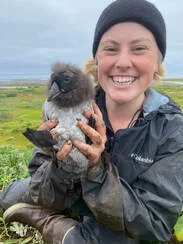
Lauren Jackson, Honours
Lauren completed an undergraduate research project on the nutrition of Black-legged kittiwakes on Middleton Island, Alaska. She used point-of-care devices to quantify metabolite concentrations in the blood, delivering rapid assessment of nutritional state for wild populations. Read her Honours here.
-

Ana Blanc-Benigeri, Honours
Ana’s undergraduate research project aimed to explore the diet preference of moulting Swainson’s Thrushes and Tennessee Warblers during their stopover in Montreal, to try to elucidate critical requirements for moult-migration stopover sites.
-

Jamie Madden, Honours
Jamie studied abundance and diversity of canopy insect populations in different ecosystems at Kenauk Nature Reserve. She collected data by rigging a drone to fly with a net, and collected any aerial insects unfortunate enough to get caught in her net. She even finished insect identifications before dying of old age. Jamie is starting a MSc at Carleton with Steve Cooke. Read her Honours here.
-

Elena Tranze-Drabinia, Honours
Elena helped track Swainson's Thrush and Tennessee Warblers at the McGill Bird Observatory while completing her Honours project. For her project, she used the VetScan to analyze the differences in Swainson’s Thrush blood metabolites between molting and non-molting birds. She now works as the research coordinator at the Arctic Ecology Lab.
-
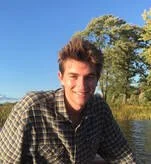
Theodore Lucaes, Honours
Théo studied the diet and contaminants in seabirds from the Gulf of St Lawrence. Specifically, he evaluated the differences in stable isotope niches and mercury contents between atlantic puffins, common murres, black-legged kittiwakes, and razorbills along their breeding season.
-

Catriona Daley, Honours
She first became interested in bats through her internship at the Kenauk Institute and the research she assisted with at the MFFP on bat maternity colonies. Her honours research project used citizen science data obtained from Batwatch to see if bat maternity colonies in more favorable habitats are more successful than those in less successful habitats.
-

Mathilde Lefvert, Honours
Mathilde grew up in the Swedish archipelago fascinated by wildlife of all kinds. She first became interested in birds through an internship at the Nichoir center for wild bird care a few years ago. Her honours examined warbler movements and activity levels at molting sites using radio telemetry data collected at the McGill Bird Observatory and using the Motus Wildlife Tracking System. Hopefully, this project will bring some much-needed improvement to her bird ID'ing skills.
-
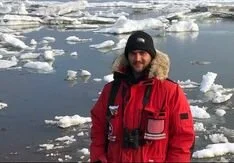
Thomas Leicester, Honours
He has always been interested in the outdoors, inspired by his grandmother and her work for the Nature Conservancy. He took an interest in birds as he grew older and realized that wherever you go, there are always birds if nothing else. His trip to India in 2016 further grew his passion, culminating in his Honors work that focuses on the Black Guillemot, an Arctic species that he studied back in 2018 and the summer of 2020 on Cooper Island, AK.
-

Capucine Pierrefeu, Research Project
Capucine was a third-year undergrad student in the MSE specializing in Biodiversity and Conservation. She is passionate about wildlife conservation and believe that the best way to ensure the longevity of species is to understand the mechanisms underlying populations’ behaviour and interactions with their environment. She did a research project stemming from Christina’s research in the Mingan archipelago.
-

Emily MacDonald, Honours
Emily completed an honours thesis project studying carry-over effects in thick-billed murres with Allison Patterson. Specifically, she is analyzing their primary feather quality to help determine if a delayed breeding season affects their plumage quality the following moult. Emily has always had a passion for wildlife and conservation and in more recent years she has become fascinated (obsessed) with birds. She is now doing a Master's at the University of Windsor.
-
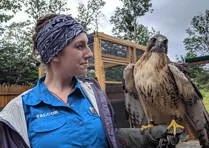
Kate Sanzari, Honours
Kate's honours project was on snowy owl populations and management in airports, with co-supervisor Rebecca McCabe. Specifically, she looked at the factors of snowy owl relocation and why they return to airport habitats after being removed. Kate has always had an interest and curiosity with birds and birds of prey are among her favorites.
-

Kayla Nicole Kuhlmann, Honours
Kayla has always been passionate about nature and animals after growing up exploring the wild areas of Texas. She was fortunate to spend the summer at the Kenauk Institute where she studied bats. Her research tests the effect of drones on bat detection to help determine if this technology might be a useful tool in wildlife research.
-

Julia Dunoyer, Honours
Julia completed an honours thesis on purple martins. She is studying their foraging habits and diet to help Kristen Lalla figure out why martins are disappearing in Quebec. From a young age, Julia loves observing wildlife and is now enjoying studying it just as much!
-
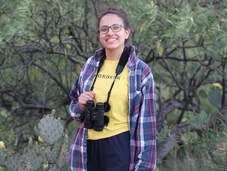
Éliane Miranda, Honours
Éliane studied black-legged kittiwakes for her honours thesis. Eliane is especially interested in behavioural ecology as well as conservation. While she is passionate about all wildlife, she feels a special affinity with seabirds. This has led her to completing her honours thesis on how personality in black-legged kittiwakes can have an impact on foraging, chick rearing and reproductive success. She is now doing a Master's in the lab.
-
Fred Tremblay, Honours
Fred went on to complete a MSc in the lab
-

Gabrielle Ednie, Honours
For as long as she could remember, Gabrielle has wanted to work with the environment. She completed her degree in Environmental Biology (Applied Ecology). She recently stumbled into the world of bat research and has been studying the taxa for the past two summers. Since then, her passion for them has grown. She spent a summer collecting data for her Honours thesis on the possibility of using drones to study the elusive creatures. She is now doing a MSc with Jeremy Kerr at the University of Ottawa.
-
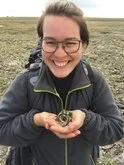
Emma Sutherland, Honours
Emma was thrown headfirst into the world of ornithology during the summer of 2018, when she headed to Cambridge Bay, Nunavut to work with Polar Knowledge Canada. She is currently completing her undergraduate degree in Environment with a specialization in Biodiversity and Conservation and a minor in GIS and Remote Sensing. Her honours thesis (co-supervised by Jean-François Lamarre of Polar Knowledge Canada) explores the migratory behavior of American Golden-Plovers in relation to weather patterns. Emma is now doing a MSc with Lisa Loseto at the University of Manitoba.
-
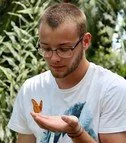
Philippe Grenier, Honours
An Environment student specialized in water ecosystems, Philippe is passionate for everything related to aquatic ecosystems! For his Honours thesis, Philippe examined the exposure to mercury and other contaminants of ospreys in the Canadian Northwest. His thesis was published in the Science of the Total Environment. Philippe is now doing environmental law at McGill.
-

Andrea Brown, Honours
Andrea has always had a great love for the outdoors and especially for observing and studying wildlife. For her Honours thesis, co-supervised by Rebecca McCabe, Andrea studied the spring migratory behaviour of Snowy Owls using GPS data provided by Project SNOWstorm. She is now doing a MSc with Laura Pollock in Biology, on how Canadian bird species' distributions will change in response to a changing climate.
-

Catherine Destrempes, Honours
Catherine has a passion for nature and outdoor activity. She is really interested in ecosystem connection which she had the chance to study in the Arctic during the summer of 2018 on Igloolik Island. Her research project focussed on the identification of the information available on allochthonous input of marine resources in the Arctic terrestrial ecosystems, under the supervision of Kyle Elliott and Marie-Andrée Giroux from Moncton University. She is now doing a MSc with Elena Bennett in NRS on ecosystem services in the Monteregie.
-

Alice Sun, Honours
At a young age, Alice discovered the world of birds through the lens of a camera. Since then, she has dedicated all her time to pursuing a career in ornithology and conservation. Alice is currently completing her undergraduate degree in environmental biology at McGill. She spent the summer of 2018 on Middleton Island, living in the salmonberries so she could study rhinoceros auklets for her honours thesis. Her project focuses on differences in foraging behaviour between breeding stages and the effects of researcher disturbance on reproductive success. Alice is now working at Impact Media Lab doing science communication.
-

Eric Ste Marie, Honours
Eric was an undergraduate student in Environmental Biology (Wildlife specialization). After having spent July 2017 doing fieldwork in East Greenland, he completed doing his Honour's thesis in our lab on the topic of seabird energetics. His project involved combining accelerometer data and estimates of daily energy expenditure to determine the costs of diving and flying in dovekies. He is now doing a PhD with Nigel Hussey (University of Windsor) studying Greenland sharks.
-
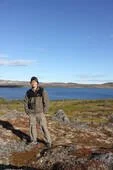
Thierry Grandmont, Honours
Passionate about birds since June 2013, I am particularly interested in how birds interact with their environment when feeding and how this affects reproduction and survival. Working with a community-based conservation NGO called QLF in Newfoundland and Labrador last summer, I fell in love with seabirds. In the fall 2018, I did an independent research project as a part of my biology major looking at Thick-billed Murre’s association with sea ice in the Canadian Arctic using telemetry data. I will be doing my MSc with Pierre Legagneux at Université Laval working with Bylot Island’s Snow Geese to examine the effect of climate change on reproductive success. Thierry is now doing a MSc with Pierre Legagneux at Laval.
-
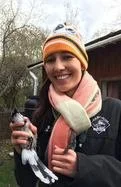
Mathilde Guglielmi, Honours
Mathilde first discovered birdwatching as a young child in France, when she was bored one summer and decided to borrow her grandpa's binoculars and explore her backyard. Several years later she rediscovered this passion when interning at the McGill Bird Observatory. Mathilde studies in the McGill School of Environment with a specialization in biodiversity and conservation and a minor in geography. She completed an Honours thesis at the McGill Bird Observatory building on Megan's work, and working closely with Ana, examining the factors influencing the detectability of transmitters within the automated radio network. Mathilde is now doing a Master's in Integrated Water Resource Management at McGill.
-

Katelyn Depot, Honours
Katelyn completed her undergraduate degree in Environmental Biology (Wildlife Biology Specialization) at McGill. She spent part of the summer of 2017 working with seabirds in Maine as a research assistant for the National Audubon Society's Project Puffin. For her senior research project, she used data collected by Project Puffin to look for relationships between puffin diet composition and changing fish communities in the Gulf of Maine.
-

Megan Phillips, Honours
Megan completed her undergraduate degree in environmental biology, specializing in wildlife biology at McGill. Her honours thesis was co-supervised by Barbara Frei of the McGill Bird Observatory and aimed to optimize the placement of the MOTUS tower to detect bird migration of passerine species. This experience helped her spread her wings so that she can migrate to her next destination, which is currently working at the Ecomuseum. Megan is now doing a Master's in Science Communication.
-

Erin Brown, Honours
Erin completed an undergraduate degree in environmental biology with a specialization in wildlife. After having spent the last two summers tree planting, she was happy to be out of the woods and learning about a new environment, including traveling to Alaska for field work. For her honours thesis she used multiple data sets provided by Dr. George Divoky of Cooper's Island, Alaska. She studied the energetics of prey switching by black guillemots, hoping to quantify the depth and time at which this event occurs. Erin completed a Master's in Environmental Impact Assessment at Concordia and is now working for Health Canada.
-

Casey Leung, Honours
Casey is an aspiring vet whose thesis was co-supervised by Barbara Frei (Director, McGill Bird Observatory). She tested the utility of point-of-care devices to measure the health of wild songbirds, especially wintering/late migrating juncos, American Tree Sparrows, goldfinches, chickadees, House Finches and robins.
-
Amanda Smith-Stasinopolous, Honours
After completing an internship volunteering with a sea turtle conservation organisation in Greece this past summer, Amanda realised that she needed more a hands-on experience with field work data analysis. She evaluated the massive data set on at-sea behaviours of black-legged kittiwakes from the Middleton, Alaska field site to examine the fascinating relationship between environmental change and animal behaviour. Amanda is now working for Charles River Labs.
-

Catherine Villeneuve, Honours
Catherine used her ninja karate skills to attack a mound of data collected on thick-billed murres at Coats Island. She examined different ways of automatically converting accelerometer data into ethograms based on validated (videotaped) data. She completed a MSc at SFU studying tree swallows with Dave Green and Ron Ydenberg, and is now working as an Environmental Technician for Organisme de bassin versant du Saguenay.
-
Emma Nip, Honours
Emma completed an undergraduate research project on mass variation in black-capped chickadees at the McGill Bird Observatory. She completed a MSc in Animal BioSciences at Guelph studying animal welfare with Georgia Mason, and works now at the Guelph Humane Society.
-
Catherine Jarjour, Honours
Catherine cured her Irritable Owl Syndrome by completing an Honours thesis on temporal trends in bird abundance at the McGill Bird Observatory. She completed a MSc thesis at UOttawa with Jule Marond-Ferron, and is now working for the bird-banding lab in Ottawa.
-
Juliana Balluffi-Fry, Honours
Juliana completed an undergraduate research project on the diversity of birds at Kenauk Nature Reserve, along the Ottawa River north of Montreal. Following a field semester in Panama. She completed an Honours thesis looking at mammal diversity at Kenauk and is now working on a MSc at MUN with Eric Vander Wal studying plant-lynx-hare stochiometry (Does this involve placing varying ratios of each in beakers? We'd love to know.).







